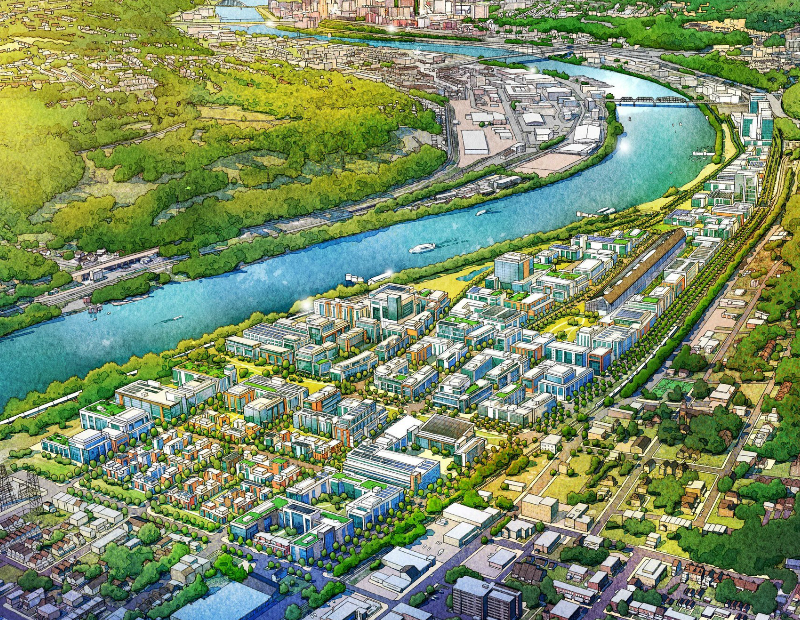Almono Seeks Developers for $1B Pittsburgh Mixed-Use Project
The company issued a request for qualifications for the Mill District, the first phase of the Hazelwood Green waterfront property.
By Barbra Murray
Almono LLC recently took a significant step forward in the development of Hazelwood Green, a 178-acre mixed-use project in the Hazelwood neighborhood of Pittsburgh. The company issued a request for qualifications (RFQ) for the Mill District, the first phase of the waterfront property.
Almono LLC is the general partner of Hazelwood Green owner Almono LP, which is a partnership of Pittsburgh’s Richard King Mellon Foundation, Heinz Endowments and the Benedum Foundation. The charitable organizations came together in 2002 to acquire and land bank the project site, which holds the distinction of being the last developable tract of sizeable riverfront property in Pittsburgh. The partnership held back on developing the property—a brownfield site that had been home to LTV Steel—until it determined the timing was right to move forward. With RFQ responses due by the middle of November, Almono LLC is set to begin selecting developers in the first quarter of 2019.
“Pittsburgh has seen a surge in demand that is primarily being driven by the research and talent coming out of Carnegie Mellon University and the University of Pittsburgh,” Rebecca Flora, principal with ReMake Group LLC, told Commercial Property Executive. ReMake, a strategy development and project implementation services provider, was tapped by Almono LLC in 2016 to serve as authorized agent and project director of Hazelwood Green.
Mixing it up
The Mill District, spanning 27 acres within Hazelwood Green, has a median target of a whopping 2.8 million square feet of mixed-use offerings. With RFQ responses due by the middle of November, Almono LLC is set to begin selecting developers in the first quarter of 2019.
A total of 1,050 residential units are included in the project’s median target, and for good reason. “The residential market is growing due partially to the market requirements of millennials and the locational shift of empty nesters, who are both are looking to simplify their living requirements and be in close proximity to the amenities of an urban environment,” Flora noted.
Additionally, multi-block sections with similar features and markets to consider have been identified for the Mill District. Space is available for office and flexible R&D in order to, as Flora said, “support both local innovation companies that are growing and attract others to the Pittsburgh market that want to be close to the university innovation hubs.” And in keeping with a live-work-play theme, the site is cleared for ground-level retail. “Large-scale retail is not our primary target, however, activating first floors of key buildings is critical to creating a sense of place, along with providing services to support the site users,” she added. The site also offers the opportunity for urban open space.
Image courtesy of Almono LLC








You must be logged in to post a comment.